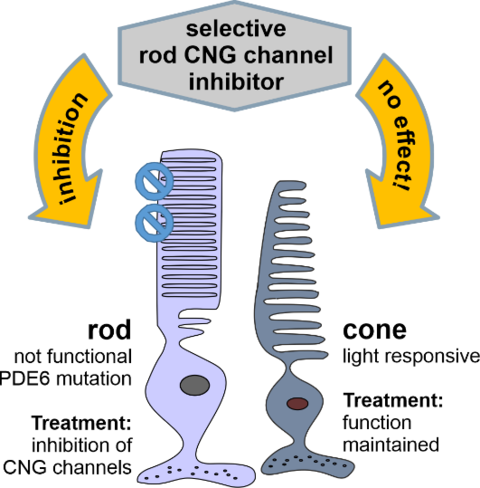Role of CNG channels in retinal degeneration
Retinitis pigmentosa (RP) is the most common form of inherited retinal degeneration that can cause complete blindness. Currently, there is no drug therapy for the approximately 2.5 million patients worldwide. RP is the result of multiple mutations in rod sensory cells causing elevated levels of cGMP. The aim of this study is to investigate an important target of cGMP toxicity: the cyclic nucleotide-gated (CNG) channels. cGMP leads to an increased opening probability of these ion channels and consequently to rod degeneration. Shortly thereafter, cone photoreceptor death occurs. The goal of this project is to identify and characterize selective modulators for the rod CNG channel isoforms that may allow slowing of disease development by targeted inhibition of these channels. The optimal modulators to be considered for a potential RP therapy should selectively inhibit rod CNG channels with high affinity and in this way preserve cone cell functionality.


